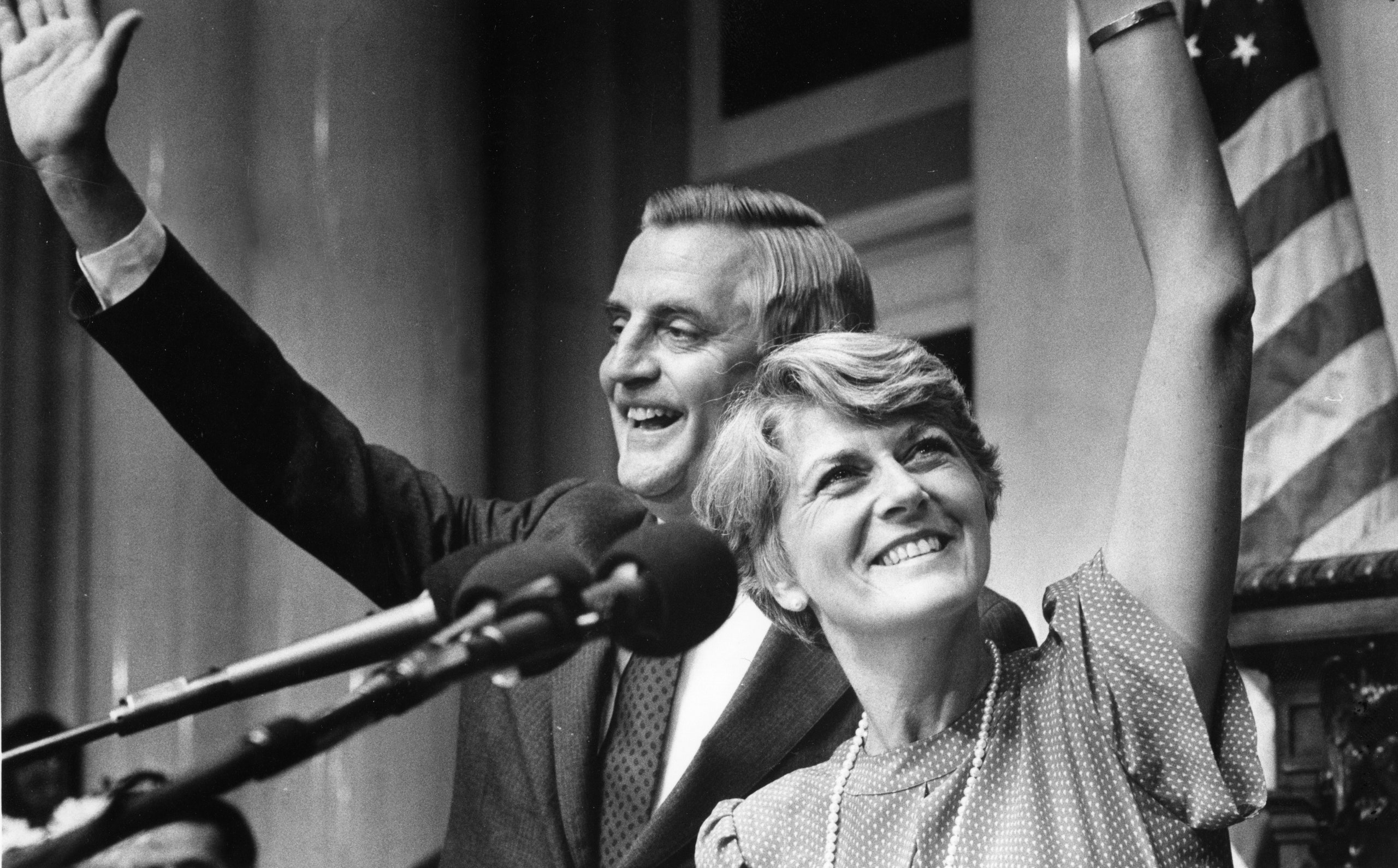And Mondale himself thought “putting a woman on a major-party ticket would change American expectations, permanently and for the better.” As he wrote, “Picking Ferraro was symbolic in that sense, but a symbolic gesture with consequences. Skeptical voters would see what an effective woman candidate would accomplish. Young women could see new horizons open up. Everyone would see how America had changed in our lifetimes and more doors would open.”
Of course, Geraldine Ferraro, who died in 2011, turned out to be something of an imperfect candidate. She was smart, charismatic, and funny, but as a three-term Congresswoman from Queens, she was largely untested on the national stage and neither she nor Mondale seemed prepared for the frequently sexist treatment she would be subjected to on the campaign trail. (The more traditional helpmate, Barbara Bush, the wife of Vice President George H.W. Bush, famously referred to her husband’s opponent as a word that “rhymes with rich.”) In addition, she was married to a man whose finances turned out to be somewhat complicated, causing an unwelcome distraction in the closing weeks of the campaign.
Though Reagan, then running for his second term, was almost unbeatable in 1984, the symbolism of Ferraro’s candidacy was deep and lasting, especially among the female reporters who covered that race. Writing about Ferraro shortly after her death, the longtime New York Times political reporter Joyce Purnick, spoke of the grudging respect she gave the vice presidential candidate. "She made no apology, gave no quarter,” Purnick wrote for The Times. “That brand of intransigence had to impress even those who disagreed with her. Her stubbornness must have resonated in particular with women, many of whom, to this day, know how it feels to hide their intelligence or mute their opinions or avoid confrontation rather than appear challenging to male power.”
In 2016, when Hillary Clinton was running for president, the journalist Alison Mitchell wrote about covering Geraldine Ferraro for Newsday 32 years earlier, and doing so because of her gender. “I was dispatched to the campaign—like women from most major networks and publications—because editors sought women to capture the history of one of their own,” Mitchell wrote. “Perhaps, we occasionally suspected, some of them also thought it would be beneath a man to ride that campaign plane.”
On that campaign trail, she wrote, “I watched the euphoric, rapturous crowds, mostly women and girls who showed up with ‘To Gerry with Love’ signs, even in the campaign’s last days, when it was going down to a decisive defeat to President Reagan and George Bush.” Reflecting on that campaign, Mitchell wondered whether the intense scrutiny of Ferraro, one that seemed to expose the weakness of the first-time national candidate, was “fair game or driven by discomfort with the idea of a woman as vice president?” A little of both, she concluded.
So, yes, the Mondale-Ferraro ticket may have gone down in flames 36 years ago. But let’s take a few minutes on the occasion of his passing to pay tribute to Walter Mondale—who had the boldness to recognize it was time a woman was elected to national office and the courage to try to make it happen.
